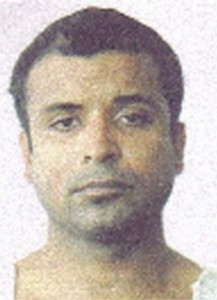Robert Simels, who once represented confessed cocaine trafficker Roger Khan, feels that his former client was coerced into pleading guilty last month.
The lawyer for Simels, who is facing witness tampering charge arising out of his defence of Khan -who has since pleaded guilty to the tampering charge – argues that “there is every likelihood that Khan would have put the [US] government to its proof rather than capitulating to a coerced guilty plea.”

Simels’ lawyer Gerald L. Shargel also contended that the government’s investigation of Simels intruded upon Khan’s defence and infringed on his “Sixth Amendment right to effective counsel” in the drug case “by depriving him of counsel of choice without adequate cause for the initial invasion, thereby inducing him to plead guilty and unconstitutionally burdening his right to trial.”
Shargel was responding to the government’s response to two pre-trial motions, filed by Simels and his co-accused Arianne Irving, which seeks the suppression of recordings made with the prosecution’s confidential witness (CW) and the two accused as well as recordings made of visits the two made to Khan in prison. Simels also wants the suppression of the items recovered during a search of his office in the basis that the grant to search authority for some items was overboard and that some of the items recovered were beyond the scope of the warrant.
Last month Khan in a surprise move pleaded guilty before Judge Dora L Irizarry for trafficking in 150 kilos of cocaine, witness tampering and gun running, and she has ordered a probation report on him before sentencing. He awaits sentencing as the judge has ordered a probation report on the man before deciding whether she would sentence him to the 15 year sentence the defence and prosecution negotiated.
Meanwhile, even though Khan has pleaded guilty, the troublesome issue of Khan’s spy equipment, which was seized from Simels’ office by US authorities, will be a bone of contention in the trial. Simels is attempting to argue that the government had no authority to seize the equipment from his office and as such it should not be used as evidence against him while the government is strongly opposing his argument.
In its argument, the government had said there was no “good-faith” basis to claim that its decision to use the opportunity presented by the CW to investigate Simels’ unlawful conduct was improper. However, Shargel argues that there was no unlawful conduct to investigate in the first place, since the government by its own account sent a wired informant to his client’s law office on the sole allegation that “Khan’s attorney [merely] wanted to speak with the CW.” He said that is a far cry from an organisational instruction to contact Simels, warranting protection of the informant’s cover as was established by the government. He pointed out that there is nothing illegal about a lawyer supposedly wanting to speak with someone in the course of defending his client.
Meanwhile, the government revealed in its argument that as part of his plea agreement to the charge of witness tampering, Khan agreed to a sweeping waiver of all attorney-client and work product privileges, as well as any claims based upon the Fourth, Fifth and Sixth Amendments related to the case. As a result, it said, neither Simels nor Irving has a right to demand that their recorded conversation with the CW be suppressed because they are “attorney work product” and Khan has waived both the attorney-client and work product privileges in the agreement.
Simels, in his quest to suppress the items recovered form his law office, had argued that the government in its affidavit for the search order had failed to articulate probable cause that the electronic eavesdropping equipment was likely to be found at the office. The equipment Simels referred is said to be the phone call-intercepting `spy’ equipment that was seized from Khan in Guyana back in 2003.
US officials had indicated that the same equipment, which was originally seized from Khan at Good Hope in 2003, was recovered from Simels’ New York law offices. Commissioner Henry Greene has since said that the police are in possession that equipment and they plan to use it as “evidence.”
Reports had indicated that the laptop was capable of intercepting and tracing telephone calls placed from a landline or a cellular phone and the software was reportedly only sold to governments. The then Home Affairs Minister Ronald Gajraj had said that the use of the instrument did not breach any of the laws of Guyana.
Last year Simels had said that Khan had received permission from the Guyana government to purchase the equipment from the Spy Shop in Fort Lauderdale, Florida. The US government pointed out that Simels had disclosed that he had telephone conversations during Khan’s trial indicating that he had ready access to the equipment and this was further corroborated by his statement to the CW on July 18 last year. “In addition… we note that the defendants do not object to the seizure of the computers.
Upon information and belief, the electronic eavesdropping equipment appears to be nothing more than a laptop computer. As such, even assuming that the probable cause showing for the electronic eavesdropping equipment was deficient, which it was not, the government lawfully seized the equipment pursuant to the warrant’s authority to seize computers found within the law office,” the government said.
But Shargel feels that the government’s response is no answer to his and Irving’s claim that it lacked present, place-specific probable cause to seize the equipment as the only evidence they presented that the equipment may have been found in the office was a US Customs receipt for a package sent there from Guyana in October 2007, almost a full year earlier. He said that the conversation with the CW mentioned “triangulation equipment” not“eavesdropping equipment” without mentioning the whereabouts.





